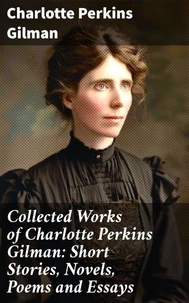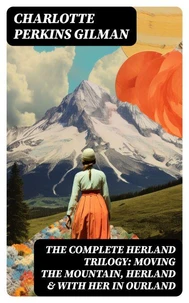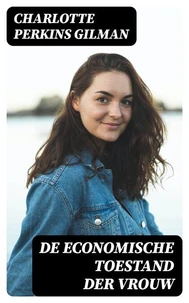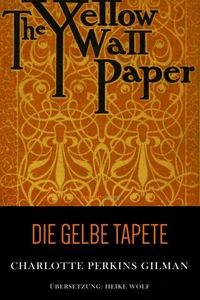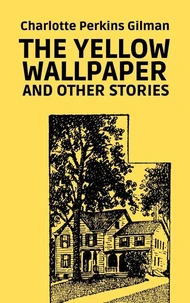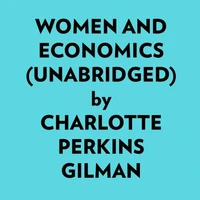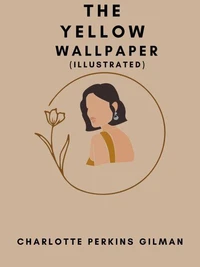Herland (Unabridged)
Par : ,Formats :
Disponible dans votre compte client Decitre ou Furet du Nord dès validation de votre commande. Le format MP3 est :
- Pour les liseuses autres que Vivlio, vous devez utiliser le logiciel Adobe Digital Edition. Non compatible avec la lecture sur les liseuses Kindle, Remarkable et Sony
 , qui est-ce ?
, qui est-ce ?Notre partenaire de plateforme de lecture numérique où vous retrouverez l'ensemble de vos ebooks gratuitement
Pour en savoir plus sur nos ebooks, consultez notre aide en ligne ici
- FormatMP3
- ISBN978-1-6693-7416-9
- EAN9781669374169
- Date de parution05/04/2022
- Protection num.pas de protection
- Taille488 Mo
- Infos supplémentairesaudio
- ÉditeurEverest Media LLC
Résumé
Please note: This audiobook has been created using AI voice.
Three male explorers set out to reach a legendary land where only women live, and find-to their surprise-that the legends are true. This country hidden in the mountains is a feminist utopia. There are no men, nor is there war, poverty, or crime. The residents subsist on food from cultivated forests, maintain immaculate houses and roads, and reproduce asexually through parthenogenesis.
Although the main characters are men, their role is to show us how their notions about society and womanhood are humorously upturned. Charlotte Perkins Gilman was an outspoken activist and suffragist, most famous nowadays for her short story "The Yellow Wallpaper." As a writer, she was stunningly prolific. She founded The Forerunner, a monthly magazine for which she personally wrote every article, story, and poem.
Because she chose to run no advertisements, she covered the cost of printing the magazine herself. In contrast to many women's publications of the day, Gilman advocated for equal rights and expanded social roles for women. Originally published serially in The Forerunner in 1915, Herland was not republished as a standalone work until decades later. It is the second in Gilman's Utopian trilogy, along with Moving the Mountain and With Her in Ourland.
Although the main characters are men, their role is to show us how their notions about society and womanhood are humorously upturned. Charlotte Perkins Gilman was an outspoken activist and suffragist, most famous nowadays for her short story "The Yellow Wallpaper." As a writer, she was stunningly prolific. She founded The Forerunner, a monthly magazine for which she personally wrote every article, story, and poem.
Because she chose to run no advertisements, she covered the cost of printing the magazine herself. In contrast to many women's publications of the day, Gilman advocated for equal rights and expanded social roles for women. Originally published serially in The Forerunner in 1915, Herland was not republished as a standalone work until decades later. It is the second in Gilman's Utopian trilogy, along with Moving the Mountain and With Her in Ourland.
Please note: This audiobook has been created using AI voice.
Three male explorers set out to reach a legendary land where only women live, and find-to their surprise-that the legends are true. This country hidden in the mountains is a feminist utopia. There are no men, nor is there war, poverty, or crime. The residents subsist on food from cultivated forests, maintain immaculate houses and roads, and reproduce asexually through parthenogenesis.
Although the main characters are men, their role is to show us how their notions about society and womanhood are humorously upturned. Charlotte Perkins Gilman was an outspoken activist and suffragist, most famous nowadays for her short story "The Yellow Wallpaper." As a writer, she was stunningly prolific. She founded The Forerunner, a monthly magazine for which she personally wrote every article, story, and poem.
Because she chose to run no advertisements, she covered the cost of printing the magazine herself. In contrast to many women's publications of the day, Gilman advocated for equal rights and expanded social roles for women. Originally published serially in The Forerunner in 1915, Herland was not republished as a standalone work until decades later. It is the second in Gilman's Utopian trilogy, along with Moving the Mountain and With Her in Ourland.
Although the main characters are men, their role is to show us how their notions about society and womanhood are humorously upturned. Charlotte Perkins Gilman was an outspoken activist and suffragist, most famous nowadays for her short story "The Yellow Wallpaper." As a writer, she was stunningly prolific. She founded The Forerunner, a monthly magazine for which she personally wrote every article, story, and poem.
Because she chose to run no advertisements, she covered the cost of printing the magazine herself. In contrast to many women's publications of the day, Gilman advocated for equal rights and expanded social roles for women. Originally published serially in The Forerunner in 1915, Herland was not republished as a standalone work until decades later. It is the second in Gilman's Utopian trilogy, along with Moving the Mountain and With Her in Ourland.




